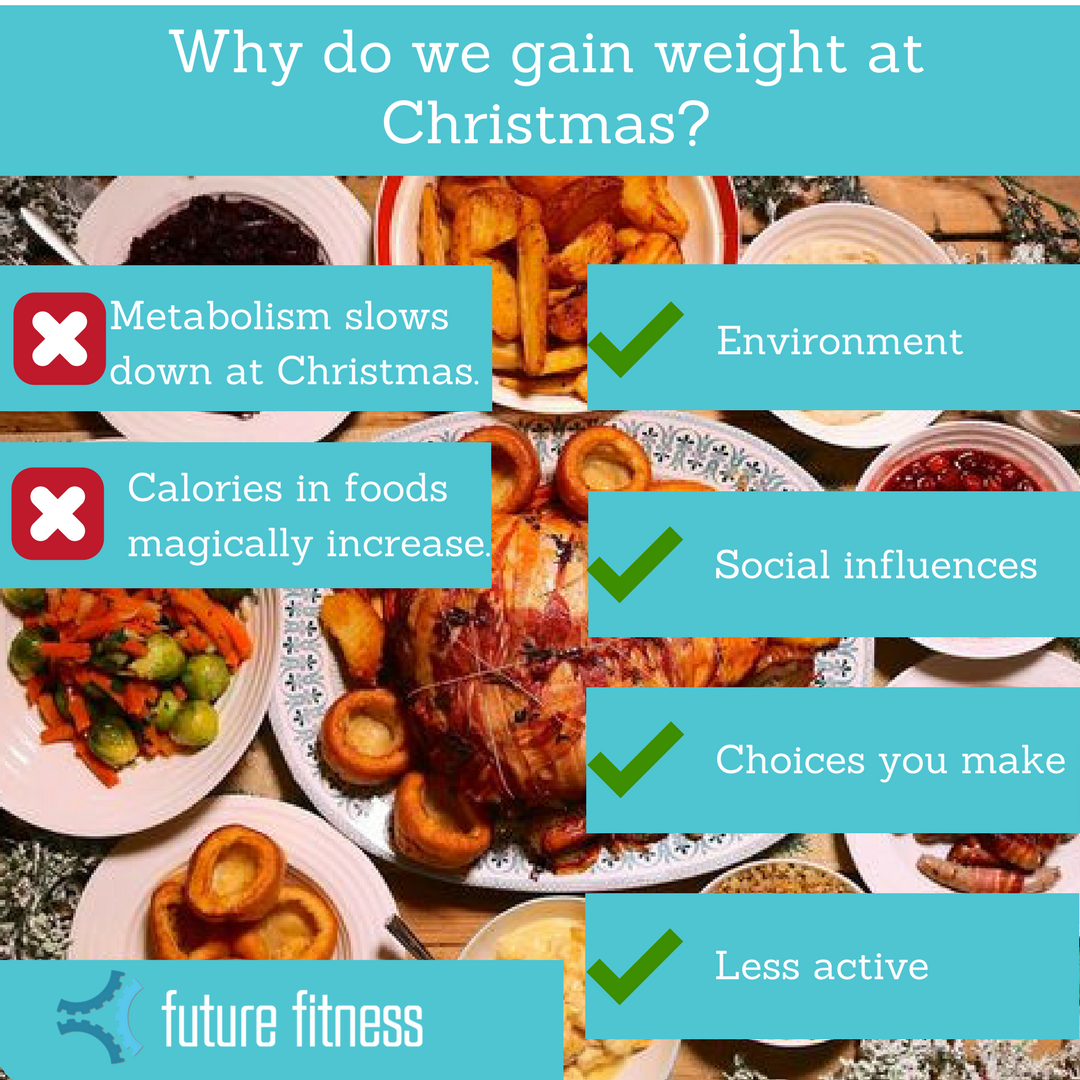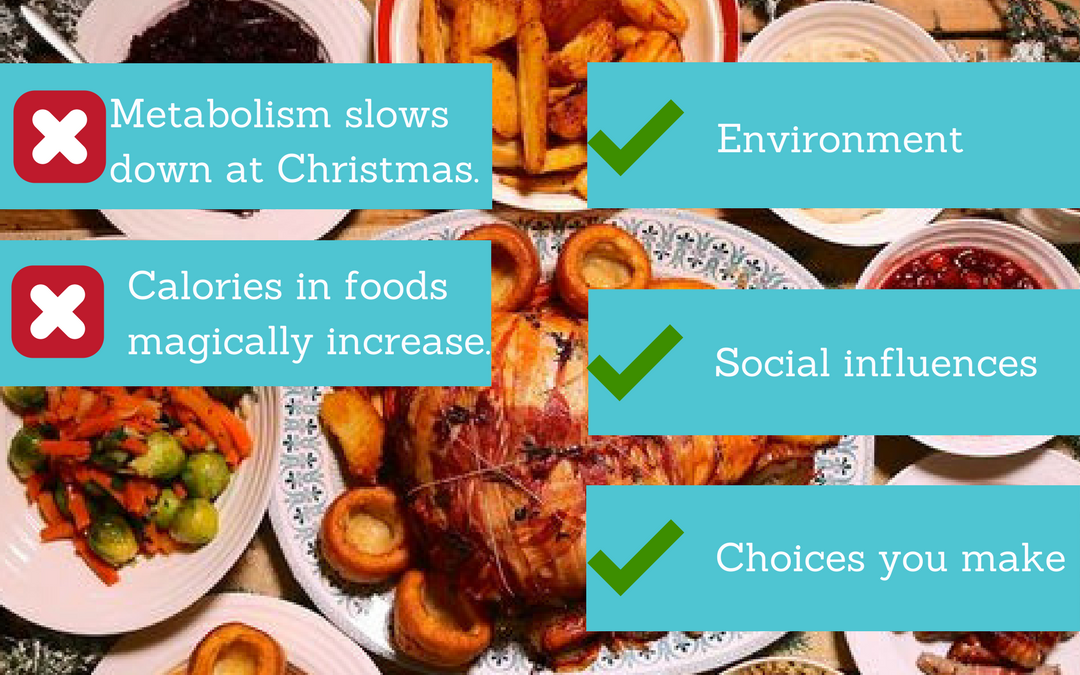
Gaining weight over the Christmas period is a common occurrence.
But why does this happen??
It’s not because our metabolisms slow down over Christmas.
It’s not because calories in foods magically increase during Christmas.
People associate weight gain with Christmas day and the days around that but for most of us, the weight gain actually starts now;
– With a busy December schedule, this can see training decrease and go out the window for a lot of people.
– With the cold weather coming in, we get less active in our everyday lives. We stop moving as much as we have been which brings down our energy output.
– We have more social events & nights out in the lead up to Christmas. This leads to more calories being consumed through alcohol, meals out and the food that we eat the days after alcohol.
This starts in early December and doesn’t finish until after the first week of January.
Weight gain does not happen on one day (e.g. Christmas day) It occurs from the accumulation effect of overeating over a period of time.

Register your interest for our January Future Fitness 56 8 Week Online Body Transformation Programme to be notified of the early bird prices first!
Why Christmas weight gain is so common;
ENVIRONMENT
Our surrounding environment accepts that weight gain is normal over Christmas and it’s a part of the Christmas festivities. If you told somebody you gained weight over Christmas, the reply would be something like “Isn’t that what January is for?!”
Cultural expectations help to determine what we eat around this time of year. Imagine telling your parents that you won’t be eating Christmas dinner this year!! Families can also have their own traditions which involve loading up the table with far more food than necessary which makes overeating harder to avoid.
Getting together in a “festive mood” also increases the likelihood of over consumption of highly palatable foods and alcohol.

SOCIAL INFLUENCES
This is the impact that one or more people have on the behaviour of others when it comes to food choices. For example “Go on it’s Christmas.”
People eat differently when they are in a group environment and who they’re sitting with at a table will effect the choices they make when it comes to food.
Peer pressure will have an effect on people’s decision making, for example you might not want to drink at your Christmas party but by not having a drink you are afraid of being the odd one out or labelled dry or boring.

THE FOOD CHOICES WE MAKE
The rise in popularity of foods associated with Christmas.
People will tend to eat things at Christmas that they wouldn’t usually eat and continue to eat it when they’re not even hungry.
Your eating routine and meal patterns can change around this time of year. Taking people out of their normal eating routine can easily lead to overeating.
We also have extremist views towards food. It’s all or nothing. If you have one slice of cake, you may as well eat the whole thing. You have one bad day, that’s your week gone. You have one bad week, that’s the month ruined. I’ll start again in January.
You spend January then busting your ass in the gym and dieting just to get yourself back to where you were at the start of December!!!

Christmas is NOT the time to take on a weight loss diet, at the most you should be trying to maintain your weight. Understanding how everything outlined above influences the food choices we make might help you to avoid overconsumption and weight gain while still being able to enjoy the festivities.
At the end of the day, it’s Christmas and it’s a time to spend with family and friends enjoying yourself. If you gain a few pounds, don’t beat yourself up about it. There is plenty of time to get back on track with your diet and exercise routine.
If you are consistent all year round with your diet and training, a couple of relaxed weeks is not going to make a huge difference in the long run.

If you found this article helpful, feel free to share it with a friend. Thanks for reading!
Coach Matt
Ready to Begin Your Transformation Journey?
Join our online coaching programme

